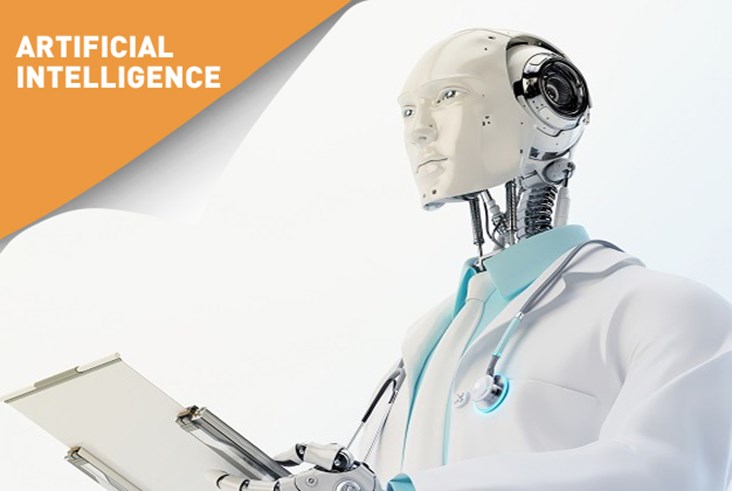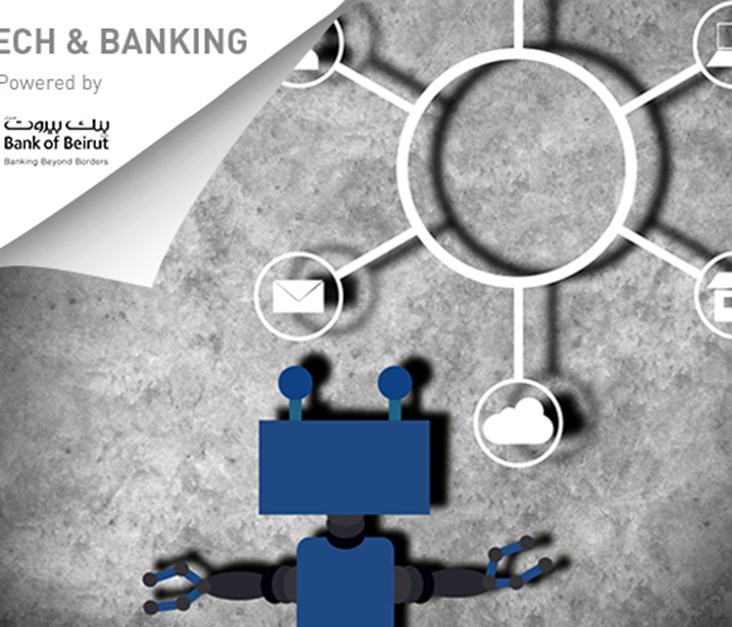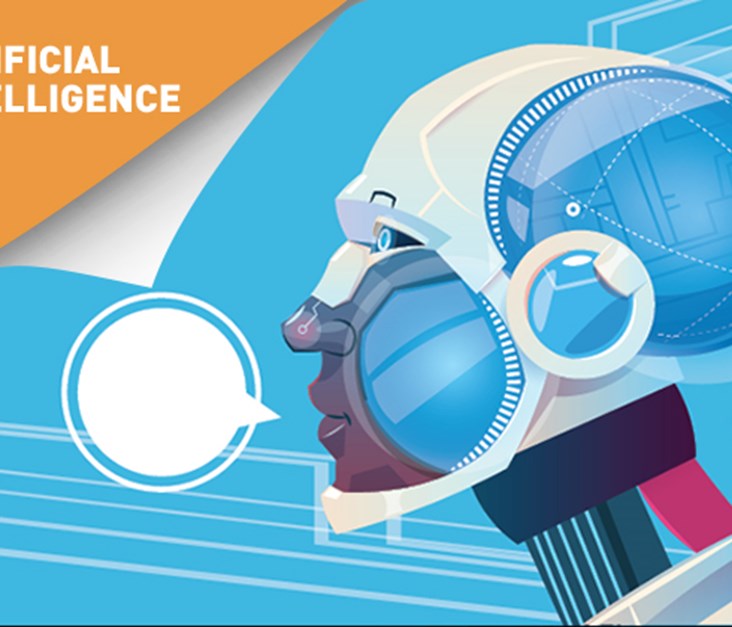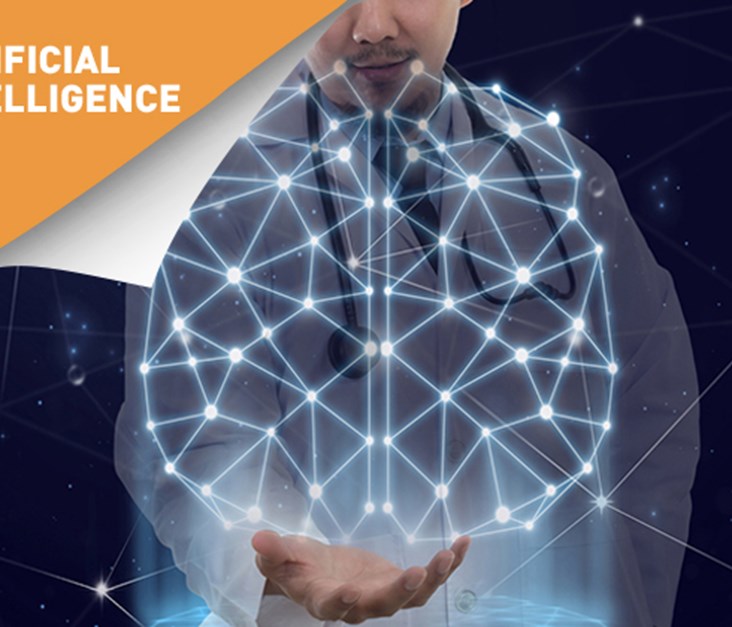
Integrating AI into the healthcare field is improving the clinician workflow and optimizing the clinical process. By doing so, AI algorithms are taking the load off doctors. However, it is absolutely positive that the role of AI in the field of medicine is not limited to the above.
AI can go a long way in the healthcare sector, from assisting doctors in the OR to reducing waiting time in clinics, all the way to early on disease recognition. In this article, you’ll read about all the ways AI can really improve the healthcare sector.
My Doctor is a Robot
So, you have a stuffy nose and a nasty fever, and it's really starting to get annoying. The first thing you do is either call your doctor or march yourself straight to his office to ask all the questions and get the right prescription. Today, with the presence of AI health assistants you can save yourself the trouble of doing that. These bots are able to cover a vast number of outpatient services; they will ask you about your symptoms and provide you with the information you need to know about your medical condition by looking into the outcome of past treatments, as well as your personal medical history.
For example, Your.MD is an AI-powered mobile app that provides basic healthcare, by suggesting the necessary steps and measures to treat the illness; if that doesn't work, Your.MD urges the user to check with their doctor. The platform asks all the necessary questions to understand the symptoms of the patient and accesses a vast network of data to link them to the causes. That being done, the assistant creates a map of the patient's condition and uses language processing and generation to provide a personalized experience.
Healthcare assistants don't only save patients the trip to the doctor's clinic, but they also free up doctors from dealing with more trivial diseases. AI assistants can also sustain continuous monitoring and care to the patients who require that sort of attention, like in the case of mental healthcare.
Moreover, bots can also communicate with patients on behalf of doctors to follow up on their progress, and revert back to the doctors with the feedback and information related to the patient's recovery journey by using Natural Language Generation and Processing (NLG/NLP) technologies.

Seeing Into the Future
AI and Machine Learning (ML) are currently capable of understanding how the human DNA functions and impacts life. Systems such as Google's Deep Mind and IBM's Watson can digest immense amounts of data - like patient records, clinical notes, diagnostic images, treatment plans - and perform pattern recognition in a short span of time.
By interpreting the human genome, ML can predict the molecular effects of genetic variation and identify patterns across millions of data points - a task that would take humans forever to do. ML algorithms can quickly scan a patient's personal and family health records for similar patterns and come up with suggestions that can lead to an early detection, hence prevention, of a dangerous disease. This sort of genetic pattern recognition is only achieved by crunching a serious amount of data and is done by following clear-cut steps:
1- Acquiring reliable personal genome data and genetic risk prediction.
2- Conducting behavior pattern analyses to determine the valuable information related to the personal genome.
3 - Data mining for scientific discovery.
With this process being put into action, medicine could detect dangerous diseases such as cancer and Alzheimer's through very faint symptoms, which increases the survival rate or treatment options of the patient. In that context, researchers at Standford University have created an AI algorithm that can identify skin cancer by training their deep learning algorithm with 130K images of moles, rashes, and lesions. Moreover, Freenome, a San-Francisco-based startup, has created an Adaptive Genomics Engines that detects disease signatures in the blood by using the freenome.

Discovering New Drugs
According to tech crunch, new drugs usually take 12 to 14 years to be available for commercial use. However, with AI/ML applications on deck, the process is accelerated. Computers can mine patient biological data to understand why people survive diseases and apply the results they found to improve current utilized therapies, or create new ones.
For example, BenevolentAI, a London-based startup, aims to accelerate the drug discovery process by harnessing AI to look for patterns in scientific literature. Based on a thorough analysis of vast amounts of data, the platform is able to equip medics with the insights they need to fasten drug discovery and research. In fact, the company has recently discovered two potential chemical compounds that may work on Alzheimer’s.

Where Are We Headed To?
Within the upcoming years, AI is expected to transform the healthcare sector; physicians will practice with AI assistants which will enable them to treat 5x - 10x as many patients, healthcare assistants will support users in health maintenance, affordable treatment tools will be available for commercial use, robotics and in-home AI systems will assist patients, and more. Also, according to Mary Meeker's 2017 Internet Trends, data has been increasing 48% year-on-year, which will empower the evolvement of AI innovation the medical sector.
However, incorporating AI in the medical field raises a lot of questions; leaving many with several concerns and fears. The numbers should remedy that insecurity, or, according to "The Telegraph" tests comparing the accuracy of triage found that nurses were accurate in 73.5% of cases, doctors were at 77.5%, while computer rates reached a 90.2%. It doesn't end here, it appears that doctors took an average of 3mins 12secs to make the diagnosis, nurses were at 2 mins and 7secs, whereas computers took 1 min 7secs.
Furthermore, in an article by CB Insights tracking 100 AI-focused healthcare companies, a recent survey has unveiled that more than half the hospitals across the world are planning to adopt AI within 5 years, and 35% plan on doing so within the two years.
From where we stand today, AI hasn't shown all its colors in the healthcare sectors, although it has come a long way. AI has proven itself to be a complementary tool to medics; positively not a replacement. AI doesn't make the decisions still, but only presents valid suggestions. One thing is certain - if it's easy to automate medical processes, empathy, and interpersonal interaction remains a sophistication that AI will need a long time to resolve.
Latest Business
Intelligence Report













